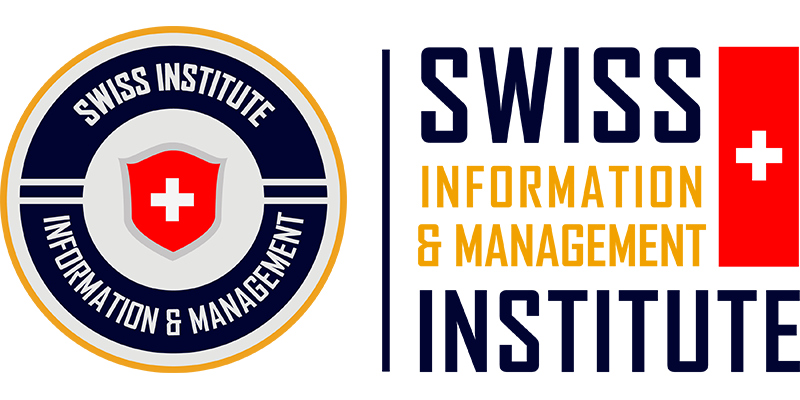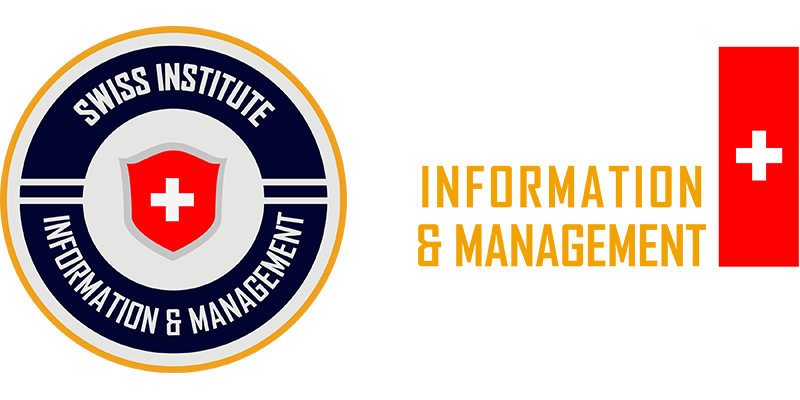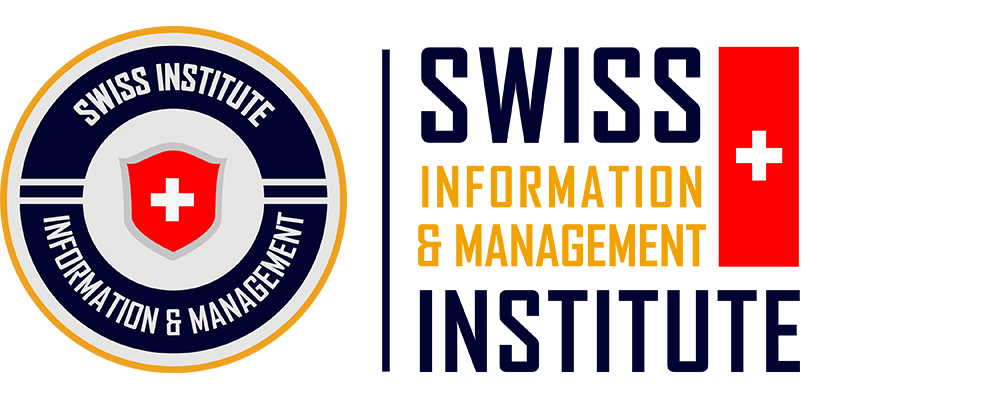Master of Business Administration (ODL)
Online learning combined with study abroad at the Asia campus.
The Master of Business Administration (ODL) program, in collaboration with Asia Metropolitan University (AMU), is an ideal choice for aspiring managers and entrepreneurs who wish to enhance their skills without interrupting their careers. The program equips learners with in-depth knowledge and practical skills in analytical thinking, critical reasoning, leadership, entrepreneurship, professional conduct, and creativity. Its advanced and practice-oriented teaching methodology incorporates real-world case studies guided by industry experts, ensuring a learning experience that closely reflects actual business environments.
Designed for working professionals, SIMI provides an academic support system to ensure students are well-prepared for success. Students have the opportunity to participate in networking activities at AMU’s campus, which support the expansion of their professional and social connections.
Along with globally recognized qualification, the SIMI Swiss Master program understands what students need:
- Fully Accredited & Recognized
- The MBA program at AMU has been listed by Trusted Malaysia as one of the best programs in Malaysia.
- Online learning while still receiving a Student Pass and without the requirement of mandatory residence in Malaysia
- Receive a qualification from Asia Metropolitan University – a qualification with international recognition
- The learning mode combines Live Class with study abroad and networking activity at AMU’s Campus
- Academic Support While Studying
- Expand your business network
- Study the original AMU program
- Tuition fee support & Investment Efficiency
Qualifications within an MBA Program:
- Master of Business Administration from Asia Metropolitan University
- Optional: Master of Business Administration in Majors from Swiss Information and Management Institute (Awarded upon SIMI’s recognition of results from AMU through the APEL.Q process)
Fully Accredited & Recognized
Asia Metropolitan University is recognized by the Ministry of Higher Education (DU054(J)), and the program is nationally accredited by the Malaysian Qualifications Agency (MQA/FA14586).
Student Pass
Although it is a live class program, the student still receives a Student Pass, and the government does not require mandatory residence.
Subsidized Tuition Fees
The program is subsidized, making the tuition significantly more affordable compared to the original programs in Asia.
Academic Support System
The academic support system helps students overcome challenges so they can focus solely on excelling in their studies.
Courses & Learning Outcomes
Semester 1
1. Accounting and Financial Management in Decision Making (MBAO6053)
Overview
- Financial Statement Analysis: Understand the structure and content of financial statements to assess the financial health of a business.
- Cash Flow and Cost Management: Learn how to control costs, create budgets, and manage cash flow effectively.
- Investment and Performance Evaluation: Use financial tools to analyze investment effectiveness and measure operational performance.
- Practical Application in Decision-Making: Apply accounting tools and data to make informed business decisions.
Unit Aims
- Understanding Financial Fundamentals: Master key accounting and financial principles within a business environment.
- Financial Data Analysis: Develop critical thinking and data analysis skills to support strategic decision-making.
- Making Effective Financial Decisions: Use financial tools to optimize business outcomes and enhance management capabilities.
2. Business Intelligence & Analytics (MBAO6605)
Overview
- Data Mining: Apply data analysis methods to understand customer trends and behaviors.
- Modern BI Tools: Get familiar with tools like Power BI, Tableau, or advanced Excel.
- Data-Driven Decision-Making: Optimize business strategies using insights from data analysis.
- Data Visualization: Create reports and dashboards that present data effectively and clearly for decision-makers.
Unit Aims
- Develop Analytical Skills: Leverage data to make smarter business decisions.
- Understand BI Tools: Proficiently use modern tools for data analysis and presentation.
- Drive Strategic Decisions: Use data to build and adjust business strategies.
3. Business Research Method (MBAO6683)
Overview
- Understanding Research Foundations: Introduction to principles and processes of scientific research in the business field.
- Research Design: Guidance on developing research proposals, selecting appropriate methods, and collecting data effectively.
- Data Analysis and Interpretation: Use quantitative and qualitative tools to process, analyze, and interpret research findings.
- Applying Research to Practice: Connect theory to real-world business practices to address practical problems.
Unit Aims
- Develop Critical Thinking: Enhance the ability to systematically analyze and evaluate research studies.
- Understand and Apply Research Tools: Proficiently use research tools within a business environment.
- Prepare for Dissertation: Build a strong foundation for the Capstone Project or in-depth research projects.
4. Entrepreneurship and Innovation (MBAO6615)
Overview
- Innovative Entrepreneurship: Understand the key elements of the startup process and innovative business models.
- Innovation Strategy: Develop an innovative mindset and adaptability in dynamic business environments.
- Market and Customer Analysis: Understand target markets and consumer behavior to design suitable business solutions.
- Business Planning: From idea to execution – develop a feasible and persuasive business plan.
Unit Aims
- Encourage Entrepreneurial Thinking: Foster entrepreneurial spirit and personal innovation capability.
- Build Startup Models: Apply innovation models and tools to real-world entrepreneurship.
- Enhance Innovation Leadership: Develop leadership skills for effective management in constantly changing environments.
5. Strategic Management and Ethics (MBAO6083)
Overview
- Strategy and Business Environment: Understand the impact of the business environment on strategy formulation and implementation.
- Strategic Decision-Making: Use models and tools to analyze and select appropriate strategies.
- Ethics in Management: Consider ethical factors in decision-making and organizational leadership.
- Developing Responsible Leadership: Integrate strategic thinking with professional ethics in leadership roles.
Unit Aims
- Analyze the Strategic Environment: Enhance the ability to assess the impact of external and internal factors on strategy.
- Understand Ethical Issues: Increase awareness of the role of ethics in business and management.
- Integrate Strategy and Ethics: Promote a sustainable and responsible leadership model in business practice.
Semester 2
1. Strategic Human Resource Management (MBAO6675)
Overview
- Strategic Human Resource Management: Explore how to align HR strategy with the long-term goals of the organization.
- Workforce Analysis: Use data and metrics to plan and forecast human resources.
- Performance Management: Implement systems to measure and improve organizational performance through HR practices.
- Change Management: The role of HR in leading and supporting strategic change initiatives.
Unit Aims
- Understand the Strategic Function of HR: Recognize the critical role of HR management in sustainable organizational development.
- Develop Systems Thinking: Link HR policies with overall business performance.
- Enhance HR Leadership Capability: Prepare for leadership roles in competitive and rapidly changing environments.
2. Marketing Management in the Digital Age (MBAO6033)
Overview
- Marketing in the Digital Age: Analyze trends, platforms, and consumer behavior in a digital environment.
- Digital Marketing Strategy: Design and implement integrated, multi-channel marketing campaigns.
- Consumer Data Analysis: Use big data and measurement tools to make precise marketing decisions.
- Customer Experience: Optimize the customer journey from brand awareness to post-purchase engagement.
Unit Aims
- Master Digital Marketing Tools: Effectively use digital platforms to reach and retain customers.
- Develop Modern Marketing Strategies: Create marketing plans based on customer insights and data.
- Adapt in the Digital Environment: Stay updated on new trends and adapt flexibly to technological changes.
3. Organizational Behavior and Leadership (MBAO6013)
Overview
- Organizational Behavior: Explore how individuals and groups function within an organization.
- Leadership Styles: Discover effective leadership styles and theories in various contexts.
- Organizational Culture: Analyze the impact of culture on performance and employee engagement.
- Motivation and Change: Harness human motivation and manage change within organizations.
Unit Aims
- Understand Motivation and Individual Behavior: Grasp the factors influencing performance and job satisfaction.
- Develop Leadership Skills: Strengthen the ability to lead and inspire teams.
- Create a Positive Work Environment: Build a corporate culture aimed at efficiency and sustainability.
4. Managerial Economics (MBAO6063)
Overview
- Managerial Economics: Understand economic principles and how they influence managerial decisions.
- Cost-Benefit Analysis: Apply marginal analysis and optimization in economic decision-making.
- Competition and Pricing: Study market structures and pricing strategies.
- Application to Business Strategy: Use economic thinking to enhance efficiency and competitiveness.
Unit Aims
- Apply Economics to Practice: Utilize theory in real-world management scenarios.
- Data-Driven Decision-Making: Use economic analysis to make informed and effective decisions.
- Understand Markets and Consumer Behavior: Analyze economic factors affecting supply, demand, and pricing strategies.
Semester 3
1. Supply Chain and Operations Management (MBAO6635)
Overview
- Modern Supply Chain Management: Learn how to design, plan, and optimize operations in a global supply chain.
- Operations Strategy: Explore methods for managing production, inventory, logistics, and distribution to enhance operational efficiency.
- Technology and Automation Applications: Analyze the role of technologies such as IoT, AI, and blockchain in smart supply chains.
- Risk Assessment and Management: Develop risk management strategies to increase flexibility and resilience in the supply chain.
Objectives
- Master Supply Chain Knowledge: Understand the full range of activities and processes from raw materials to end customers.
- Develop Analytical and Decision-Making Skills: Use data to make strategic decisions related to operations and logistics.
- Adapt to Global Trends: Prepare for supply chain management roles in a globalized and dynamic environment.
2. Project Paper (MBAO6663)
The Project Paper is the final assignment completed by MBA learners at the end of their program. The objective of the Project Paper is to consolidate and apply the knowledge and skills accumulated throughout the course. Unlike traditional exams, the Project Paper requires learners to solve real-world problems or address challenges in their field.
Main Features of the Project Paper:
- Practical Application: Learners tackle real business issues, conduct research, or develop strategic plans for an organization, either real or hypothetical.
- Knowledge Integration: The Project Paper requires learners to synthesize and apply concepts from various subjects, demonstrating systems thinking and effective use of information in a professional context.
- Research Component: An important part of the Project Paper involves collecting, analyzing, and interpreting data to support conclusions and recommendations.
- Submission and/or Presentation: Upon completion, learners are required to submit and/or present their Project Paper to the institution.
Benefits After Completing the Project Paper:
- Real-World Experience: Learners gain hands-on experience in addressing business problems and applying their knowledge to practical situations.
- Skill Development: The Project Paper enhances critical thinking, problem-solving, research, and communication skills.
- Professional Portfolio: The final output of the Project Paper can serve as a demonstration of capability, useful in interviews or career advancement.
- Networking Opportunities: The Project Paper often creates chances to connect with industry professionals and build valuable relationships.
Entry requirements & Learning methods
1. Entry Requirements
In addition to the entry requirements, candidates applying to the program are also assessed for their suitability by the admissions committee before joining the program to ensure that they can acquire and benefit from the program.
Entry requirements:
To enroll this program, learners must possess one of the criteria below:
- A bachelor’s degree with a minimum CGPA of 2.50 or equivalent, as accepted by AMU; OR
- A bachelor’s degree with a minimum CGPA of 2.00 and not meeting a CGPA of 2.50, can be accepted subject to rigorous internal assessment.
English requirements:
If a learner is not from a predominantly English-speaking country, proof of English language proficiency must be provided through one of the following:
- IELTS: 6.0
- TOEFL iBT: 60
- Pearson Test of English: 59
- Cambridge English Qualifications and Test: 169
Please note:
- In case of not having an English proficiency certificate, the candidate can provide it within 6 months.
- SIMI and AMU reserve the right to make admissions decisions based on the requirements of recognized agencies and the global quotas of the program.
2. Learning methods
The program lasts 1 academic years and is delivered in a blended format combining online learning and study abroad, tailored for working professionals:
- Online learning is used for specialized courses.
- Study abroad components are held at Asia Metropolitan University's campus during the research phase.
- Additional research support is provided through the LMS (Learning Management System).
3. Academic Support
We understand that pursuing an accredited postgraduate program can be both exciting and challenging, especially for busy adult learners. To help you overcome these challenges, we’ve created the SIMI Swiss Supporting Systems, designed to guide you through any difficulties during your studies.
For a full overview of the support available, be sure to watch our informative videos, offering help at every stage of your academic journey.
Program accreditations
AMU is recognized by the Ministry of Higher Education
- Fully recognized by the Ministry of Higher Education, AMU upholds the highest standards of academic excellence and quality: SEE RECOGNITION HERE.
The MBA (ODL) program is nationally accredited by MQA
- MBA (ODL) programs are accredited by the Malaysian Qualifications Agency (MQA) with the MQA/FA14586, ensuring that they meet national and international benchmarks: SEE ACCREDITATION HERE
- Sample Certification and Transcript of the MBA (ODL) from AMU: HERE
AMU’s MBA ODL is among the best MBA programs in Malaysia
- The MBA program at AMU has been listed by Trusted Malaysia as one of the best programs in Malaysia.
Parnership Confirmation from AMU
- The Letter confirming the partnership between Asia Metropolitan University and SIMI Swiss (issued by AMU): CLICK HERE
Parnership Confirmation from SIMI
- The Letter confirming the partnership between Asia Metropolitan University and SIMI Swiss (issued by SIMI Swiss): CLICK HERE
You will get
Fully Accredited & Recognized
Student Pass
Subsidies and investment efficiency
Academic Support
All Master' Programs (Asia Campus)
Fully Accredited
Multi Recognition
Master of Science in Transportation and Logistics
Powered by LSCM Institute of Switzerland
Master of Science in Information Technology (By Research)
Powered by Swiss IT Institute
Master of Science in Information Technology (By Coursework)
Powered by Swiss IT Institute
Master of Business Administration
Powered by BizSchool of Zug
Master of Business Administration (ODL)
Powered by BizSchool of Zug
Master of Business Administration in Human Resource Management
Powered by BizSchool of Zug
Master of Science in Healthcare Management
Powered by Swiss Healthcare School


